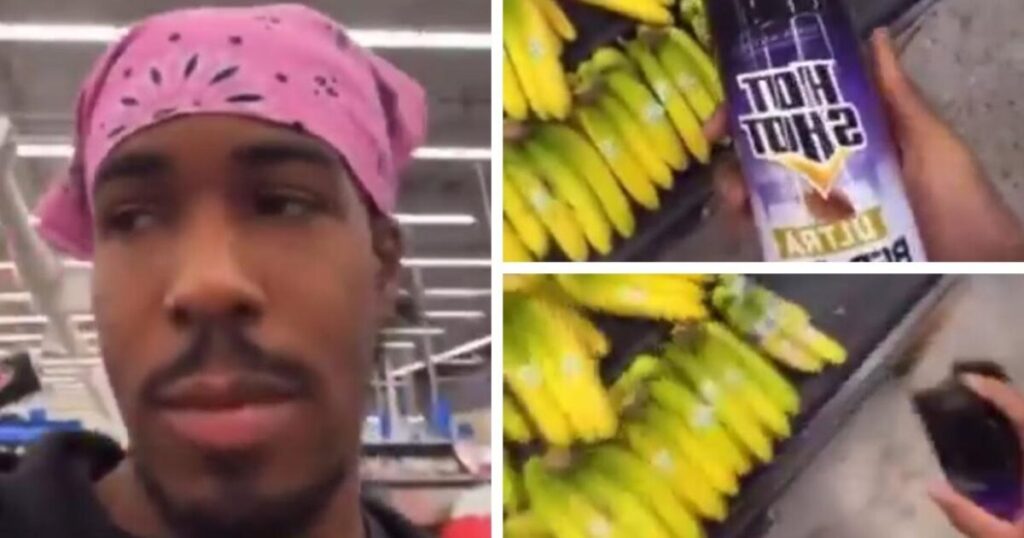In a distressing incident that emphasizes the dangers of social media stunts gone awry, 27-year-old Charles Smith has drawn attention for a cruel prank that involved spraying poison on food items in a Walmart store located in Mesa, Arizona. Known on TikTok for his chaotic antics, Smith decided to escalate his antics by committing a serious crime for social media views. In an act of reckless disregard for public safety and well-being, he filmed himself as he applied pesticide from a can onto vegetables, fruits, and rotisserie chickens, all of which were intended for sale to unsuspecting customers. This brazen act not only exposes the victimization of innocent shoppers but also raises significant questions about the potential public health risks associated with such pranks.
Smith’s decision to share the video of the crime online was perhaps the most astonishing aspect of this incident. Court documents reveal that he did not have a plan to conceal his actions; rather, he filmed himself engaged in the act, making it easy for law enforcement to identify him quickly. Just ten minutes after the toxic outburst, Smith bizarrely returned to the store, seemingly to collect the poisoned items in a shopping cart. His behavior exemplifies a troubling trend among social media influencers, where the pursuit of virality can drastically overshadow ethical considerations and responsible actions. The video he posted, featuring him loading the contaminated items into his vehicle, further incites outrage and raises questions about his mental state and the motivations behind such dangerous behavior.
As a direct consequence of Smith’s outlandish actions, Walmart incurred significant financial losses. The company was forced to discard nearly $1 million worth of potentially contaminated food, as it could not risk endangering customers who might unknowingly purchase the poisoned items. According to the police, the time delay between the act and Smith’s return to the site left ample opportunity for fellow shoppers to purchase the contaminated products, stressing the urgent need for a response to such pranks. The ramifications extended beyond financial losses, as this incident threatened public health by putting the lives of unsuspecting customers at risk.
Mesa police arrested Charles Smith shortly after the incident, charging him with multiple offenses including Introducing Poison (felony), Criminal Damage (misdemeanor), Endangerment (misdemeanor), and Theft (misdemeanor). The gravity of the charges reflects the seriousness with which authorities are treating this case, as Smith’s actions were not merely a prank but constituted a blatant disregard for public safety and a potential threat to the health of countless individuals. Cases like these call for stricter regulations and penalties against individuals who engage in dangerous pranks that can lead to harm to others or property damage.
The public reaction to Smith’s actions has been overwhelmingly negative, with many expressing anger and disbelief that someone could act in such a reckless manner. Social media platforms, while providing a space for creative expression, have also become hubs for perilous challenges and pranks that risk the safety of civilians. This incident is a grim reminder of the potential consequences of irresponsible behavior driven by the need for online attention. Discussions about accountability and the ramifications of harmful social media behaviors have become increasingly relevant in today’s digital landscape as more individuals remain captivated by the allure of viral fame.
Ultimately, this incident underscores a critical need for greater awareness surrounding the impacts of social media culture and its influence on behavior. As pranks and challenges continue to escalate in their danger and intensity, it is essential that society addresses the growing disconnect between online personas and real-world responsibilities. Smith’s case serves as a cautionary tale, illustrating the significant dangers that can arise when the quest for social media recognition overrides common sense and ethical standards. In the grand scheme of societal values, public safety must prevail over fleeting viral moments that can threaten the well-being of communities.

